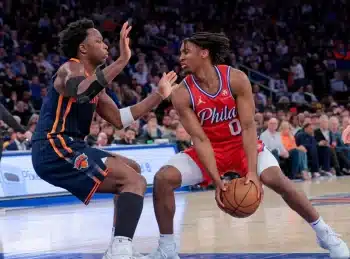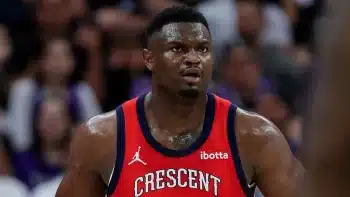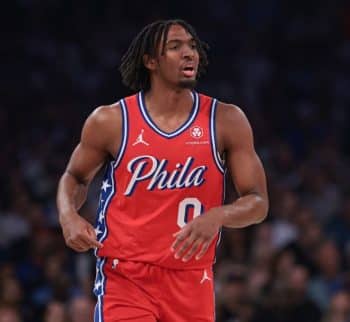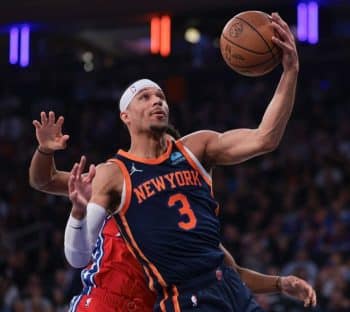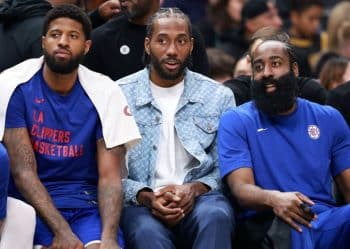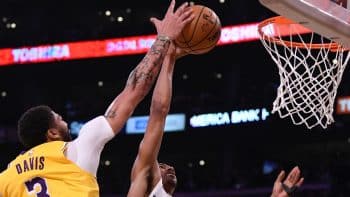NBA
Fixing The New Orleans Pelicans

The New Orleans Pelicans executed one of the weirdest, wildest trades in NBA history when the team acquired DeMarcus Cousins from the Sacramento Kings for Buddy Hield, Tyreke Evans, Langston Galloway, a top-three-protected first round pick and a second-rounder in the upcoming 2017 NBA draft. The trade was expected to transform the Pelicans into a team that could go on a run to secure the eighth playoff seed, but that scenario has yet to emerge with the team stumbling to a 4-6 record since the blockbuster trade.
The weirdness was in the behind-the-scenes intrigue surrounding the trade. Bleacher Report’s Ric Bucher tweeted that the Pelicans pulled an offer that added a 2019 first round pick after Cousins’ camp made the team nervous about its ability to re-sign him. The consensus view is that the Kings got fleeced, but Sacramento effectively got a pair of first round picks for a player the team had decided to move on from. With the Kings holding a fire sale and dropping the price, the Pelicans likely saw a deal too good to pass up, despite any misgivings.
Source: better deal for Cousins 2 days' earlier Vlade Divac referenced was from NO. Boogie's reps scared NO, NO switched '19 1st to '17 2nd.
— Ric Bucher (@RicBucher) February 23, 2017
Cousins’ play for the Pelicans leaves open the question of whether New Orleans is where he wants to be. He still shows the same tendencies to swipe at steals, pick up cheap fouls and trot back on defense that soured the Kings on extending him. The trade didn’t seem to pick him up from his usual surliness, although he led the Pelicans to a 100-77 blowout of the visiting Portland Trail Blazers with 22 points and nine rebounds Tuesday. Cousins may have perked up as a result of his past history with current Blazers Meyers Leonard and Jusuf Nurkic, who were held to 4-for-16 shooting. The win drew the Pelicans within five games of the Denver Nuggets — owners of a three-game win streak and the eighth spot in the playoff picture — with only 15 games remaining.
Ultimately, the Pelicans won the trade from a talent standpoint, but lack both sufficient talent to surround Davis and Cousins with and salary cap flexibility to address that deficit. Point guard Jrue Holiday will be an unrestricted free agent this summer and New Orleans may have no choice but to tender a large offer. The team is only projected to have about $15 million in cap space if Holiday leaves. Just as the Atlanta Hawks overpaid to retain Joe Johnson in 2010, the Pelicans may be forced to overpay since the team won’t have the cap flexibility to find a replacement of equal talent.
Holiday is currently ranked 15th in real plus-minus and 16th in player efficiency rating among NBA point guards, making him about average for a starter. Potential max free agents such as Chris Paul and Kyle Lowry are beyond New Orleans’ means. Other pending free agent point guards include Utah’s George Hill and Indiana’s Jeff Teague, who were involved in a draft-day, three-team trade. Since the Jazz gave a lottery pick to the Hawks as part of the trade and the Pacers surrendered Hill, both players will be expensive to obtain due to sunk costs for their current teams. This puts the Pelicans in a tough spot since Holiday hasn’t appeared in more than 65 games since 2012-13.
Beyond Davis, Cousins and Holiday, New Orleans has no player averaging double-digit points other than Jordan Crawford (given the great nickname “Instant Grits” by Cousins), who is averaging 15.3 points through four games on a 10-day contract. Starting small forward Soloman Hill is averaging 6.5 points and 3.7 rebounds. He’s signed for three more seasons at around $12 million per. The Pelicans have a similar commitment to center Omer Asik, who is completely out of the rotation. Asik is unlikely to find his way back into it with the arrival of Cousins and improved play from fellow backup center Alexis Ajinca. Shooting guard E’Twaun Moore has three more seasons at about $8.5 million per and is averaging 9.7 points on better than 39 percent shooting from three-point range.
The Pelicans are essentially auditioning to the league’s bargain free agents as a new super team, and the audition isn’t going well. In 179 minutes Cousins and Davis have shared the court, no Pelican with multiple field goal attempts has shot better than Cousins’ 41.4 percent from the floor, per NBAWowy. Davis is shooting just 38.6 percent while on the floor with Cousins. That number jumps to 55 percent in 169 minutes with Cousins on the bench. The roster situation is so volatile in New Orleans that coach Alvin Gentry — whose job may be on the line if he can’t figure this out in a hurry — started undrafted free agent Wayne Selden Jr. at shooting guard against the Trail Blazers in his first NBA game.
On the positive side, one pending free agent who might be motivated to play for the Pelicans is Knicks shooting guard Justin Holiday, Jrue’s older brother. Basketball Insiders senior writer Michael Scotto interviewed Holiday recently, and he spoke about his desire to play on the same team as his brother. The Knicks are 5.3 points per 100 possessions better with Holiday on court than on the bench, a team-best net differential (minimum 400 minutes). If the Pelicans are so desperate for guards that Gentry feels the need to start an undrafted player with zero games experience, Justin Holiday might be exactly what New Orleans is missing.
NBC’s Michael Gallagher tweeted that Cousins said he felt expectations were set too high after the trade. So what are realistic expectations for the Pelicans? Gentry is faced with the unenviable task of trying to make a twin towers configuration work in a small-ball era with insufficient surrounding talent. A full offseason and training camp together would allow Cousins and Davis a more realistic opportunity to figure out how to play together. For New Orleans, the bottom line is that this process must result in Cousins’ image being repaired. Accomplish that and, even if it turns out that New Orleans isn’t where Cousins wants to be at next season’s trade deadline, the Pelicans could ultimately improve by facilitating a trade to Cousins’ preferred destination and receiving assets in return.
So that’s what it has come to for the Pelicans: becoming a Bourbon Street version of the Spurs Car Wash. Win or lose, if Davis can convince his fellow Kentucky Wildcat to cut down on the technical fouls and other negatives, it could improve Cousins’ trade value. The Celtics, with a war chest full of assets, would have presumably gotten involved if Boston found Cousins attractive. That they didn’t, and that New Orleans got Cousins so cheaply, indicates exactly the sort of trade value he had. Barring a miracle such as New Orleans winning one of the top three picks in the NBA Draft Lottery, the most important outcome is that, win or lose, the Pelicans need to look like they’re having fun doing it.
